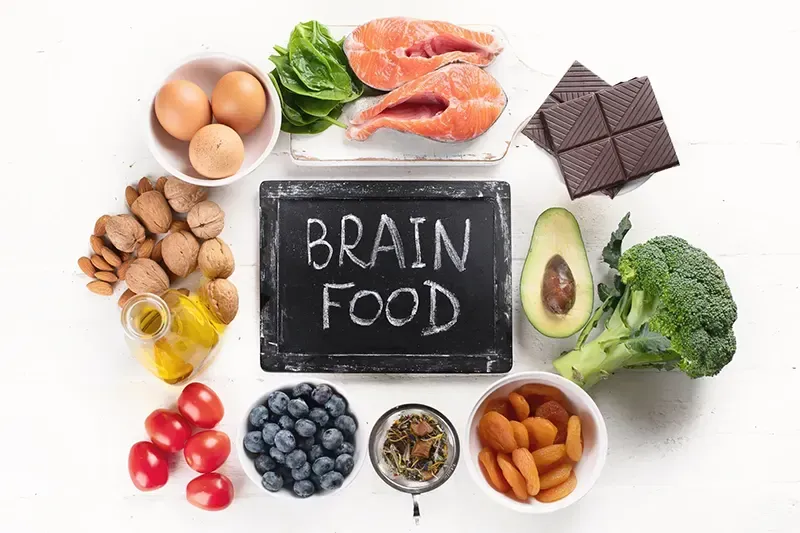You Could Lower Dementia Risk by 28% by Making This Protein Swap, New Study Suggests

I found this study on Eating Well and thought it very beneficial.
A new study found a connection between processed red meats and worse cognition.
Brain health has become a hot topic these days, and for good reason—the rest of you can’t function without your brain. And many things affect how well your brain functions. From food and physical activity to sleep and stress, all of it influences the health of your brain—for better or for worse. Thankfully, the brain also has healing superpowers, and a damaged brain can heal over time, given the proper tools.
Researchers from Brigham and Women’s Hospital in Boston recently took a closer look at two main categories of food—red meat and processed red meat—and their effects on brain health. Specifically, they were looking at cognitive function and dementia. Cognitive function is multifaceted and includes how quickly your brain can process information, memory, language and executive function—which includes the ability to plan, focus and switch attention. Dementia is a group of diseases that affect cognitive function, and Alzheimer’s disease is a type of dementia.
These researchers published their findings in January 2025 in Neurology. Here’s what they found.
How Was This Study Conducted?
Researchers pulled data from two long-running U.S. studies. The first, the Nurses’ Health Study (NHS), started in 1976 and recruited 121,700 female nurses aged 30 to 55. The second study, the Health Professionals Follow-up Study (HPFS) began in 1986 and enrolled 51,529 male health professionals aged 40 to 75.
This current study was broken down into four phases, each phase looking at how red meat and processed red meat affects specific outcomes. Participants recorded a food diary every two to four years listing what they ate and how often. Researchers defined processed red meat as bacon, hot dogs, sausages, salami, bologna and other processed meat products. They defined unprocessed red meat as beef, pork, lamb and hamburger.
After calculating how much processed red meat participants ate on average per day, they were divided into three groups:
- Low: averaged fewer than 0.10 servings per day
- Medium: averaged between 0.10 and 0.24 servings per day
- High: averaged 0.25 or more servings per day
Participants were also grouped according to the average amount of unprocessed red meat they ate per day:
- Low: averaged less than 0.5 servings per day
- Medium: averaged between 0.5 and 0.99 servings per day
- High: averaged 1 or more servings per day
What Did the Study Find?
Dementia Diagnoses
The first phase included more than 130,000 participants drawn from the NHS and HPFS who were free of dementia when the study began. During the 43 years (on average) of follow-up, 11,173 people in this group developed dementia.
After adjusting for factors like age, sex and other risk factors for cognitive decline, researchers found that participants in the high processed red meat group had a 13% higher risk of developing dementia compared to those in the low group.
When looking at unprocessed red meat and comparing people who ate an average of less than one half-serving per day (“low” group) to people who ate one or more servings per day (“high” group), researchers found no difference in dementia risk.
Objective Cognitive Function
For the second phase, researchers analyzed objective cognitive function in 17,458 NHS participants with an average age of 74. OCF is how well your brain works to remember, think and solve problems. OCF can be tested and scored using standardized tests. This group took the assessments four times during the study period.
After adjusting for factors like age, sex and other risk factors for cognitive decline, researchers found that those in the high processed red meat group had faster brain aging, reducing their overall cognitive abilities—referred to as global cognition—more quickly compared to those in the lowest processed red meat group. Specifically, they found that for every serving per day of processed red meat people ate on average, their global cognition aged 1.61 years faster and verbal memory 1.69 years faster.
Subjective Cognitive Function
The third phase was the analysis of subjective cognitive function. SCF is based on what participants believe regarding their memory and thinking skills—like whether or not they felt their cognitive skills were declining or staying the same. SCF shows up before cognition can be objectively tested. The SCF group took surveys rating their own memory and thinking skills twice during the study. There were 33,908 NHS and 10,058 HPFS participants for this phase, for a combined total of 43,966 participants with an average age of 78.
After adjusting for potential confounding factors, researchers found that participants who ate an average of 0.25 servings or more per day of processed red meat (“high” group) had a 14% higher risk of subjective cognitive decline compared to those who ate an average of fewer than 0.10 servings per day (“low” group).
They also found that people who ate one or more servings of unprocessed red meat per day (“high” intake group) had a 16% higher risk of subjective cognitive decline compared to people who ate less than half a serving per day (“low” group).
Substitution Analysis
The fourth phase was the substitution analysis. This looked at whether brain health improved when processed red meat was replaced by healthier proteins. Here’s what the researchers found:
- Replacing one serving per day of processed red meat with a serving of nuts and legumes lowered the risk of dementia by 19%. That swap also resulted in 1.37 fewer years of cognitive aging, and a 21% lower risk of subjective cognitive decline.
- Replacing one serving per day of processed red meat with a serving of fish was associated with a 28% lower risk of dementia and 51% lower risk of subjective cognitive decline.
- Replacing processed red meat with poultry was associated with a 16% lower risk of dementia and resulted in 1.33 fewer years of cognitive aging. Other lean protein substitutions showed similar associations.
How Does This Apply to Real Life?
We’ve previously reported that processed meats were associated with higher heart disease and stroke risk, and that regularly eating deli meat—a type of processed meat—may raise your risk of diabetes by 15%. This latest study adds to the mounting evidence that processed meats are not helpful for your health and may also affect brain health when eaten regularly.
The good news is that if you’re currently noshing on processed red meat on the regular, you can swap it for healthier proteins to lower your risk of dementia. And while there’s no guarantee, when the brain is given proper tools, it has an amazing ability to repair some of the damage due to other factors.
Omega-3 fatty acids are one of the best brain-loving nutrients you can consume. Oily fish, like salmon and tuna, as well as plant-based proteins, like walnuts, chia seeds and flaxseeds, are some potent sources of omega-3s.
Eating plenty of plants—fruits, vegetables, whole grains, nuts, seeds and legumes—will also provide brain-loving antioxidants and other nutrients. Berries are a rich source of these antioxidants, so try to include some in your meals and snacks most days.
While it sounds simple on paper or on the computer screen—just add more berries and fish to your diet—actually making it happen in real life can be challenging. That’s where the MIND diet comes in.
The MIND diet is a fusion of the Mediterranean diet and the DASH diet. This means that it’s loaded with whole foods rich in antioxidants and healthy fats and is low in sodium, added sugar and artificial ingredients. To get you started, try these 20 MIND diet dinner recipes.
The Bottom Line
This study suggests that higher intake of processed red meat—like bacon, hot dogs, ham and sausage—increases the risk of cognitive decline and dementia. Swapping these meats with healthier sources of protein, including fish and nuts, and following the MIND diet can reverse the risk and slow brain aging. If you need more guidance, all of our anti-inflammatory meal plans and meal plans for healthy aging incorporate these foods for brain health and provide flexible structure for you to follow.
Other health habits also influence brain health—including physical activity, getting plenty of quality sleep, staying well-hydrated, managing your stressors, learning new skills that challenge your brain and spending time with loved ones—so take a big-picture view for brain health and choose one or two areas to begin working on (https://www.eatingwell.com/red-meat-dementia-study).




